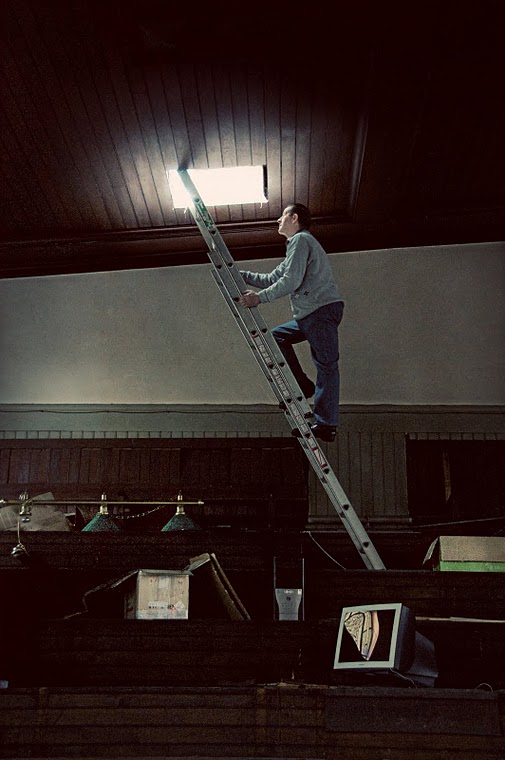The 2011 Full Frame Documentary Film Festival, held April 14-17 in Durham, NC, had one of its strongest lineups ever, with over 90 documentaries—including several of particular interest to Christian viewers.

Jane McAllister’s 17-minute short film Caretaker for the Lord (pictured here) won the fest’s President’s Award for best student film. Eschewing narrative for montage, the film deftly interweaves snippets of activities at St. Luke’s and St. Andrew’s Parish in Glasgow, where fewer than 30 people typically attend services and the caretaker is paid five pounds a week to try to keep the building functioning. McAllister told Christianity Today that some social observers have cautioned that if the rate of church closings remains constant, the church in Scotland could virtually cease to exist by 2033.
Allard Detiger’s The New Saint chronicles the attempts by the mother of slain border guard Yevgeny Rodionov to have her son classified a martyr by the Eastern Orthodox Church. A cultural portrait of the overlay between television entertainment, folk legend, and church tradition, the film provides a glimpse into a world that is simultaneously alien to most American viewers and yet, in many points, disturbingly familiar.
Julia Haslett’s An Encounter with Simone Weilworks both as an introduction to an undeservedly marginalized moral philosopher and social activist and as a mediation on how the director grapples with Weil’s thoughts as she attempts to apply it to her own life.
To Be Heard, about students growing through “power writing” courses in the Bronx, is deeply informed by co-director Edwin Martinez’s Mennonite upbringing, particularly its emphasis on the power of community. Martinez told CT that unlike Waiting for Superman, his project “isn’t overtly an educational film” and that the filmmakers’ goals were “not to scream out policy issues” but to tell the story of three kids who find hope and empowerment through community. He opined that the film does, in its way, preach “salvation” of a kind.
Several other films dealt with world religions. Jed Rothstein’s Oscar-nominated Killing in the Name follows a Jordanian Muslim who speaks out against Jihadist violence, emphasizing how often those who are victimized by it are other Muslims and challenging its adherents that they are misrepresenting the Koran. Natalie Braun’s and Avigail Sperber’s The Hangman interviews the Jewish man assigned to guard and, eventually, execute Holocaust organizer Adolph Eichmann. Daniel Goldberg’s 27-minute, single-take Steps to Eternity is a wordless observation of one man’s routine yet inspiring struggle to attend religious services.
Political and social issues were front and center in many of the event’s films. Steve James, director of Hoop Dreams, previewed The Interrupters, a look at Chicago’s CeaseFire organization and its attempts to curb inner-city violence. Academy Award winner Barbara Kopple (Harlan County, USA; Shut Up and Sing) screened Gun Fight, an examination of America’s love affair with weapons. The line between terrorist and activist was meditated on in If a Tree Falls: A Story of the Earth Liberation Front and Better This World, which tells the story of two Texas teens arrested for domestic terrorism at the 2008 Republican National Convention. Laura Israel shows how the prospect of wind turbines divides a town in Windfall, while Susan Saladoff’s Hot Coffee generated strong festival buzz by using the famous Liebeck vs. McDonald’s case as a lens to examine the politics of tort reform.
Kenneth R. Morefield is an Associate Professor of English at Campbell University in Buies Creek, NC. He is the editor of and a contributor to Faith and Spirituality in Masters of World Cinema.








